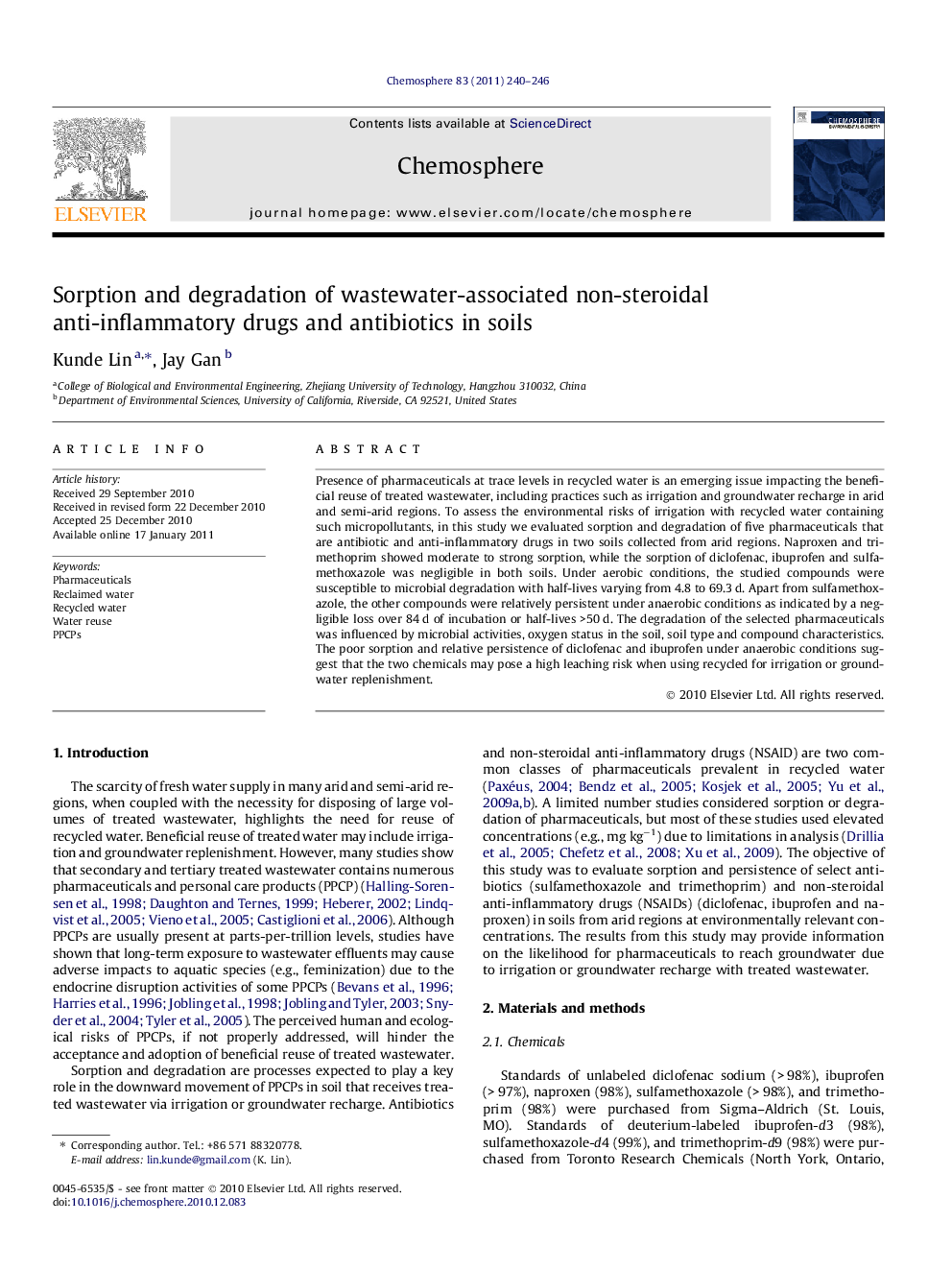| Article ID | Journal | Published Year | Pages | File Type |
|---|---|---|---|---|
| 4410860 | Chemosphere | 2011 | 7 Pages |
Presence of pharmaceuticals at trace levels in recycled water is an emerging issue impacting the beneficial reuse of treated wastewater, including practices such as irrigation and groundwater recharge in arid and semi-arid regions. To assess the environmental risks of irrigation with recycled water containing such micropollutants, in this study we evaluated sorption and degradation of five pharmaceuticals that are antibiotic and anti-inflammatory drugs in two soils collected from arid regions. Naproxen and trimethoprim showed moderate to strong sorption, while the sorption of diclofenac, ibuprofen and sulfamethoxazole was negligible in both soils. Under aerobic conditions, the studied compounds were susceptible to microbial degradation with half-lives varying from 4.8 to 69.3 d. Apart from sulfamethoxazole, the other compounds were relatively persistent under anaerobic conditions as indicated by a negligible loss over 84 d of incubation or half-lives >50 d. The degradation of the selected pharmaceuticals was influenced by microbial activities, oxygen status in the soil, soil type and compound characteristics. The poor sorption and relative persistence of diclofenac and ibuprofen under anaerobic conditions suggest that the two chemicals may pose a high leaching risk when using recycled for irrigation or groundwater replenishment.
Research highlights► The tested compounds generally have weak sorption on loamy sand and loam soils. ► The tested compounds are susceptible to degradation under aerobic conditions. ► Most of the tested compounds are persistent under anaerobic conditions.
